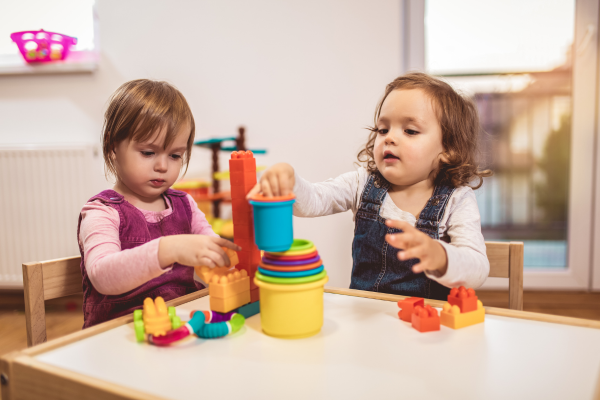Is your little one approaching their first birthday, and you’re wondering about childcare? The question of starting nursery at 1 year old often brings a mix of excitement and apprehension. It’s a significant milestone for your child and family. You might ask, “Is this the right time? Will they be too young?” These are valid concerns. This post offers practical, trustworthy, and emotionally supportive advice to help you navigate this important decision, ensuring you feel confident and informed.
Table of Contents
The Benefits of Starting Nursery at 1 Year Old
Deciding to send your child to nursery at a young age is personal. Many parents find that starting nursery at 1 year old offers benefits that contribute to early development. It’s more than childcare; it’s a stimulating environment fostering growth.
- Enhancing Language and Motor Skills
Early nursery exposure accelerates language and motor skills. In a nursery, children are immersed in a language-rich environment. They hear new words, participate in storytelling, and engage in sing-alongs. These activities expand vocabulary and improve comprehension. Nurseries also boost fine and gross motor skills through activities like block building, drawing, and outdoor play. These actions enhance coordination and control, laying foundations for future development. - Promoting Social Skills Through Peer Interaction
At one year old, children begin exploring the world beyond family. A nursery provides opportunities to interact with peers, fostering essential social skills. It’s a safe space to learn sharing, turn-taking, and cooperation. These interactions, guided by educators, help children understand perspectives and develop empathy. Playtime is a dynamic classroom for social learning, where children navigate social situations and build friendships. This community atmosphere builds confidence, preparing them for future school environments.
- Academic Preparation and Learning Opportunities
Nursery environments lay a strong foundation for future learning. They introduce structured routines and educational activities. Storytime develops attention spans and sparks curiosity. Puzzles and games encourage problem-solving and critical thinking, nurturing a love for learning. Early exposure to this stimulating environment impacts a child’s academic journey, helping them adapt to school routines. This early start instills curiosity and a positive attitude towards learning, ensuring they are better equipped to thrive. As highlighted by Heathfield Knoll School, a structured environment encourages cognitive development.

Is Your Child Ready? Signs to Look For
When considering starting nursery at 1 year old, parents often ask, “Is my child ready?” There’s no single answer, as every child is unique. However, signs and considerations can help you assess readiness.
- Individual Temperament
Your child’s temperament affects their adaptation to nursery. Some children are outgoing and curious, thriving in a bustling nursery. Others are reserved, preferring familiar surroundings. Observe your child’s reactions to new people and places. Understanding their personality provides clues about their adjustment to early nursery. Readiness means finding an environment matching their developmental stage and personality.
- Separation Anxiety Considerations
Separation anxiety is normal, peaking between 8 and 18 months. This can make starting nursery at 1 year old daunting. While tears are common initially, good nurseries have strategies to cope. Look for signs your child can be comforted by other adults. Practicing short separations at home builds confidence. Open communication with nursery staff about your child’s needs is vital.
- Routine and Adaptability
Nurseries have structured routines. Consider your child’s current home routine. Are they flexible with nap and meal times? If rigid, gradually introduce flexibility. This helps them adapt to the nursery’s daily flow. A consistent yet varied nursery environment helps children develop a greater sense of routine and predictability.
Preparing for Nursery: A Smooth Transition
Thoughtful preparation makes a difference when starting nursery at 1 year old. A smooth transition helps your child feel secure and excited. Here are tips to ease the process.
- Gradual Introduction
Many nurseries offer settling-in periods. You and your child can visit together, gradually increasing the time your child spends alone. This familiarizes them with the environment, caregivers, and other children. Start with short visits, building up to their full schedule. This phased approach builds trust and reduces anxiety. Encourage exploration and engagement during visits. - Communication with Nursery Staff
Open communication with nursery staff is paramount. Share details about your child’s routines, preferences, and anxieties. The more information they have, the better they can support your child. Ask questions and seek advice. A good nursery welcomes input and provides updates. Establishing rapport with the key worker offers reassurance. - Comfort Items and Routines
Familiarity provides comfort during change. Encourage your child to bring a comfort item from home. These items link to home, providing security. Inform the nursery about these items. Maintaining consistent routines, both at home and with the nursery, also helps. Share naptime routines or favorite lullabies. Consistent drop-off/pick-up times and goodbye rituals help your child understand expectations. A quick, confident goodbye is often best.

What to Look for in a Nursery for 1-Year-Olds
Choosing a nursery for your one-year-old is crucial for a nurturing environment. The right setting enhances the positive experience of starting nursery at 1 year old.
- Nurturing Environment
Look for warmth, care, and genuine love for children. Observe staff-child interactions. A low staff-to-child ratio indicates individual attention. The space should be safe, clean, and inviting. A nurturing environment responds to toddlers’ emotional needs. - Qualified Staff
Staff quality is paramount. Inquire about qualifications, experience, and training in early childhood development. Knowledgeable staff make a significant difference. Look for passionate, patient educators skilled at fostering curiosity. Their expertise impacts your child’s learning and well-being. - Stimulating Activities
A good nursery offers varied stimulating activities. This includes sensory play, creative arts, music, and outdoor exploration. Activities should be open-ended, allowing children to explore at their own pace. A diverse range ensures all developmental aspects are nurtured. For more insights, refer to Zero To Three, a non-profit for early childhood development.
Conclusion
Deciding whether to begin starting nursery at 1 year old is a significant decision. A well-chosen nursery offers immense benefits, fostering social, emotional, and cognitive growth. By understanding readiness, preparing thoughtfully, and communicating openly, you ensure a smooth transition. We hope this guide provides insights and reassurance. Share your thoughts or experiences below, or share this post with other parents.
Read Also: “Unique and Engaging Daycare Event Ideas to Attract Parents“
Follow us
